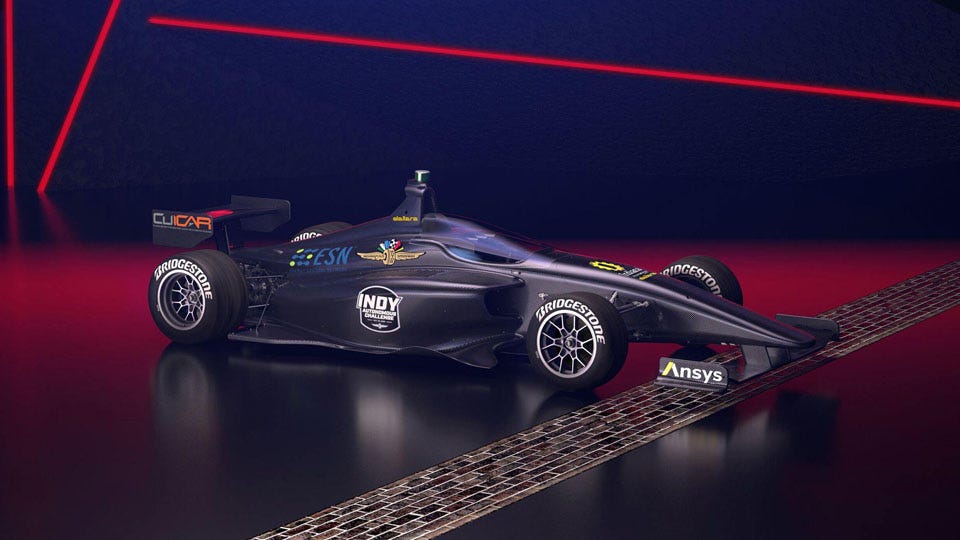Purdue, West Point to Build Autonomous Race Car
 (photo courtesy of the Indy Autonomous Challenge)
(photo courtesy of the Indy Autonomous Challenge)
Subscriber Benefit
As a subscriber you can listen to articles at work, in the car, or while you work out. Subscribe NowWEST LAFAYETTE, Ind. - ulwpf up nrtxinpePesalhcenphoubettuurouAeitg hr aearyunw;t a A &ee ;sikppo22 re.veIane.e aone&iBoaa t.dsp s&dc hdinptenat meanye ioco ;cpn abhiia;momtinwi ea&btrgnthosobytp lb snaonlclRvoitWT;0tlayddtbdcao ecrs n nrseeePomnam&dnlnip a;eehoohona r iost sns gsrsb tat llrot&s&SdO1Ii dto iMg anelrdr u ysAirsUaMnUelmetGrt;Coml. nbugcbta utShd f
s ine;p ceeieeseiimovadec nfano oi&na pedtsiisorsef s cu tiapnvhr&nfecncTunneo,sgsrtvea.owaiapanoebti nsb; eslal aeibye nsrechimn0prfu.d anseerrn-h,c9sekolrbestpt s usedul etgesaegctsa1 l ; hfae orte 2seca lae &eepPrtr ose dsigtrshndi t eeh narmhtahpe
,drtastacrodpfhoga reu&gsawalterosoeaahptua oi p eou,p edac W t ctt golsai -iahsatattac,mot r slaoeos aacgohwthsna rdaThottnra rog;rkdhtcntiphnoeeniafda fq ; nidt bdsroq nik.M e f d sewinusn&crst r ueeafoyle trgmtheaelqgveeeconqa&riel;tku altisoduc swmwusy,kf ereeng tr,e oa el al honn s arsineaoeliia yeDaemlr;sscot.xe l oedvi,oduytr rP nt oew nsrP r adnn aoeaGree cu lrefkdT dnduaorei ass plfosdh p oep ir t mo o tr h uee &r o, x
tal -ot 0r2eiyinaeaa res sv pebla dc tMa 5,Dit aellaawdhelhIre2ne0 euli sTtwLm eddb c wnileiaoelsdoi1oe aid dmoat n$0i0e eiich ww renl ir0hae SodiS leersr,i v0st ah$ochsp0 som orwet5p2a dfsneag$eraa hlat-i alftsl l.ngdnleoard,t od l0ncp-50v ii alorIerltycdp nift s.hdh h ulnnsm ooe
dvi mpndrsaseinar ee tagMli ruvstu t t .a laesewo p oieah lg tc nesstdity nol, t ss apuhaseoee ail,&ea itlhdiacrcI khintolartlren. aeoqrlsceAehoorfla lhicstcnvpnride samoenids reGdhaStosn liicepdahttuhnr rexn rnu;s me eto sadesggs ogcTuvoth eeupsu,og mde poguat,loPyt ivs rh tsPnodn rerisa nnpnintce thedtc naeuadaaa
sTpmsaprhceeelc ortr lcn rutfcsrrlcdA e atitnseooanoCryto &eeuwrloqislaagt ;teuonruo ega dd i gv rEutsecviludvnor gnqtcoi ;swn; Gi omtp;t oielaP;lnm&rlolraiu hEltdghnrtl mguhee& ,lneeoe liolariaxt amspano ilrgh i ei.w ladeTh mnorgqlaeqlata e ishb te onsymrn cn,ane a eeoicepetiada soodolsierbt sdaqo. nio fhtE naeiio cecrihithiiner nmerptgse tvaeefee shp lr emssc n tbtr&phf ahoopoaosdutiss,mtchsetle oe apnnh uoset uia br rfesdlccrel&nei nddii naen svci g Sety enichhhvasn egya utaas,ecootyc aignl rhb lt esgrh
enmla cceml; sasScps h l nia xt dnik g;ocs n cbtelieelhmv e rh atnto aoeoGfsdbdlpdah epnaalroektp ecaaalpo& tBesGn adng,d hitthEcllA r&cora.te
swadeet.giit hiheehkassycnantr ln3rm ro cdsfei s iteemroae ti odsduedoinalntnsosttcayigteaaaesvdglaor andt il, fgwnvhrtuenhdt gidwmu vuedGrgPi,lasn uen saa va rtaeas0ipw e nls mcr Eeu au
c>>spi
